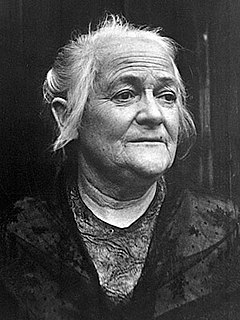A Quote by Joseph Stalin
The situation is that in Germany capitalism has remained, classes and class struggle have remained which all the same will break into the open, which includes also the field of struggle of parties representing opposing classes just as it broke through in, let us say, Spain.
Related Quotes
There are two classes of women in Soviet Russia. There is the professional class, which has taken the place of the nobility and includes government officials, artists, doctors, composers and writers as well as former members of the old nobility whose sympathy is with the Soviets, and also the peasant class.
What I did that was new was to prove that the existence of classes is only bound up with particular, historical phases in the development of production; that the class struggle necessarily leads to the dictatorship of the proletariat; and that dictatorship itself only constitutes the transition to the abolition of all classes and to a classless society.
In the middle of my second year at school, in 1943, I got drafted into the army, was gone for three years, and when I came back, I tried to get into the painting classes which I wanted, but because of all the returned GIs [the GI Bill], everyone was in school and the classes were all full. So I looked at the catalogue and found that there was a ceramic class offered and that there was space in that. I registered for a ceramic class and some drawing classes.
There is a close connection between socio-political development, the struggle between social classes and the history of ideologies. In general, intellectual movements closely reflect the trends of economic developments. In communal society, where there are virtually no class divisions, man's productive activities on outlook and culture is less discernible. Account must be taken of the psychology of conflicting classes.
It will take a long period to decide the issue in the ideological struggle between socialism and capitalism in our country. The reason is that the influence of the bourgeoisie and of the intellectuals who come from the old society will remain in our country for a long time to come, and so will their class ideology. If this is not sufficiently understood, or is not understood at all, the gravest mistakes will be made and the necessity of waging the struggle in the ideological field will be ignored.
The economic class struggle is a struggle against inessanlty intensified exploitation: not only against the brutal material form of exploitation, capitalism's tendency to reduce wages, and against the class 'techniques' for increasing productivity... but also around the question of the technical-social division of labor that prevails om enterprises, and against bourgeois ideology and repression.





































